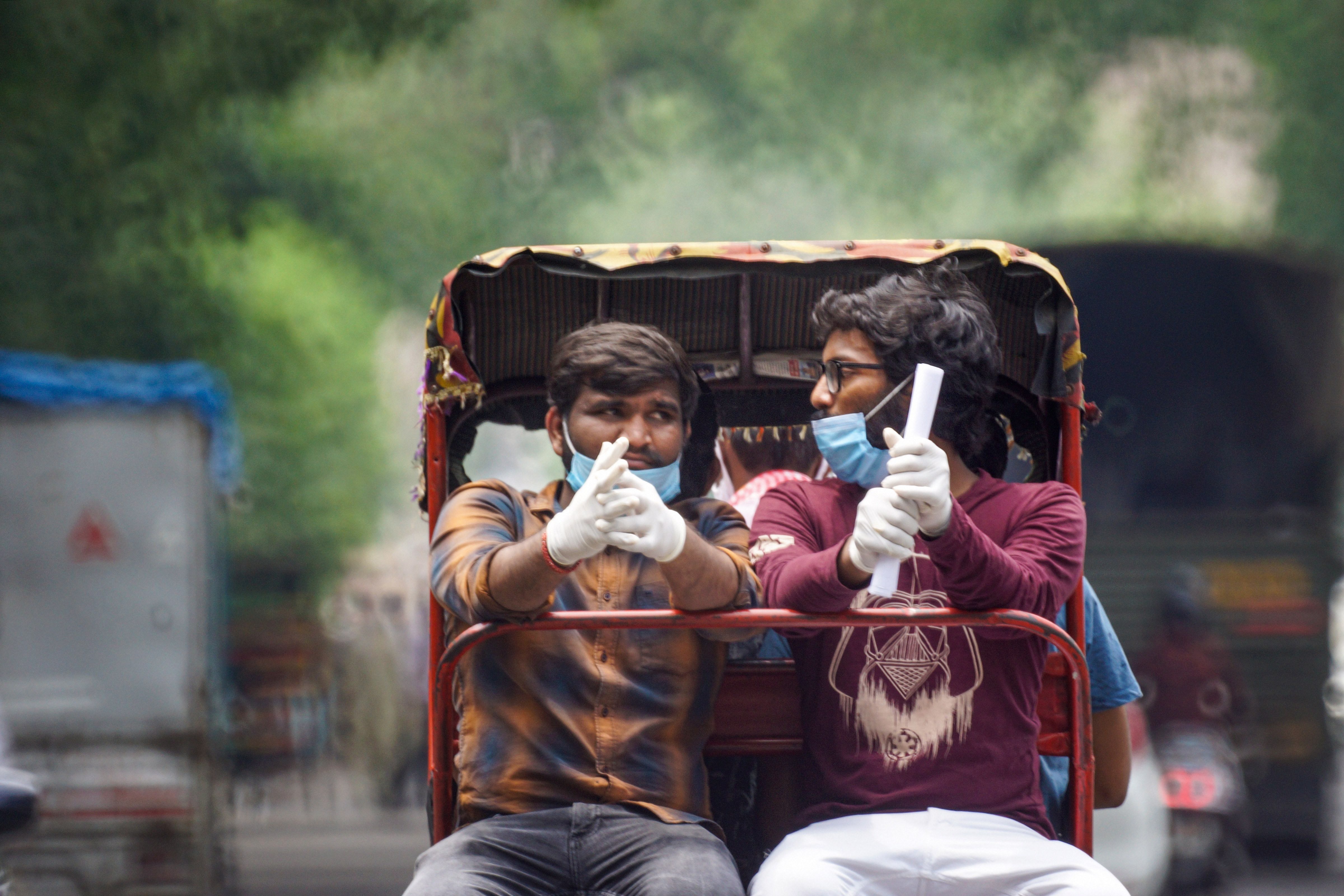India’s health ministry on Monday announced a plan to look for the new coronavirus in every district every month, acknowledging the need for nationwide surveillance that was first sought by public health experts more than six weeks ago.
The surveillance, aimed at monitoring trends in the prevalence of the coronavirus infection, will test 50 pregnant women, 50 patients without respiratory symptoms and 100 healthcare workers from six government and four private hospitals every week in every district.
The ministry did not specify when the surveillance would begin and how many months it would last.
Public health and infectious disease experts have underlined the need for district-level surveillance since the national lockdown’s first week, arguing that high-granularity data about prevalence could guide evidence-based decisions on lockdowns only where they were needed.
The ministry said the surveillance would initially be done with the standard viral diagnostic test, which looks for the viral genetic material in throat or nasal swab samples. But its subsequent rounds could use the rapid antibody test kits that look for anti-viral antibodies in blood samples.
“This is an important decision, but a quite, quite delayed decision,” said a physician who is part of a medical panel advising the government on the coronavirus disease and who requested anonymity. “We’ve been asking for this since early April.”
The delay has meant that while the Centre and state governments are expected to further relax from May 17 the restrictions imposed during the lockdown, health authorities remain blind to what could be the true prevalence or burden of infections in any district.
The health ministry on Monday recorded an unprecedented spike of 4,213 new cases of Covid-19, raising the total confirmed cases to 67,152. Some 20,917 patients have recovered, 44,029 remain in hospital and 2,206 have died.
The number of districts without reported Covid-19 cases had fallen from 356 on April 15 to 216 by May 8.
Although the current testing criteria set by the Indian Council of Medical Research (ICMR) require doctors to look for Covid-19 in all patients with severe acute respiratory distress or influenza-like illness, health experts stressed that patients with mild symptoms would go undetected under these criteria.
“This is why population surveillance in low-risk groups such as pregnant women or patients who visit hospitals with non-respiratory illnesses becomes critical,” said Oommen John, a public health expert at The George Institute for Global Health, New Delhi.
“The lockdown period was an opportunity for two things — to build our hospital and healthcare infrastructure dedicated for Covid patients and to intensify surveillance to learn about the infection’s prevalence at the district level. But we’re just starting surveillance now.”
Physician-researchers guiding the government’s response to Covid-19 believe that two factors are likely to have contributed to this delay: the National Centre for Disease Control’s efforts to rapidly expand testing on the basis of contact-tracing and the wait for rapid antibody test kits.
“We felt the ministry (officials) did not recognise the need for surveillance; they just wanted as much testing as possible,” said a senior doctor who asked not to be named.
“The NCDC was not participating and surveillance is its domain. Only the NCDC has the ability to do this.”
Senior health ministry and NCDC officials were not immediately available for comment.
A medical panel set up by the ICMR had, as reported in The Telegraph, recommended last week that pregnant women, patients without respiratory illness and healthcare workers be tested in at least 80 district hospitals.
That proposal has been tweaked for a vastly scaled-up plan to cover every district, a health researcher said, possibly owing to the fresh confidence gained by the emergence of an indigenous antibody test kit announced by the ICMR on Sunday.
The surveillance will use a pooling strategy that will pool 25 samples for each test. Health researchers say that if any pooled sample shows presence of the virus, all 25 people from whom the samples had been taken would need to be tested individually to determine who is infected.










